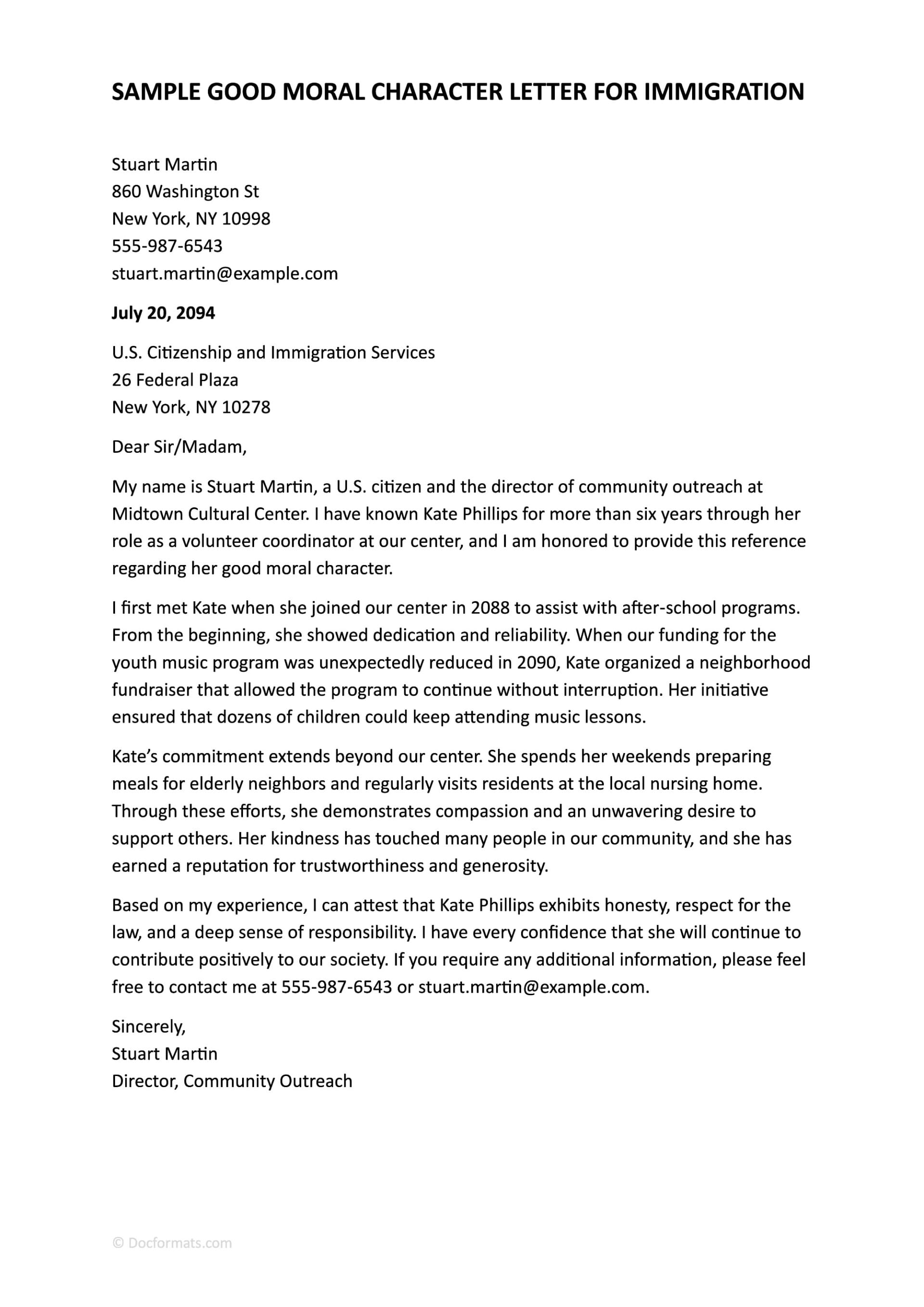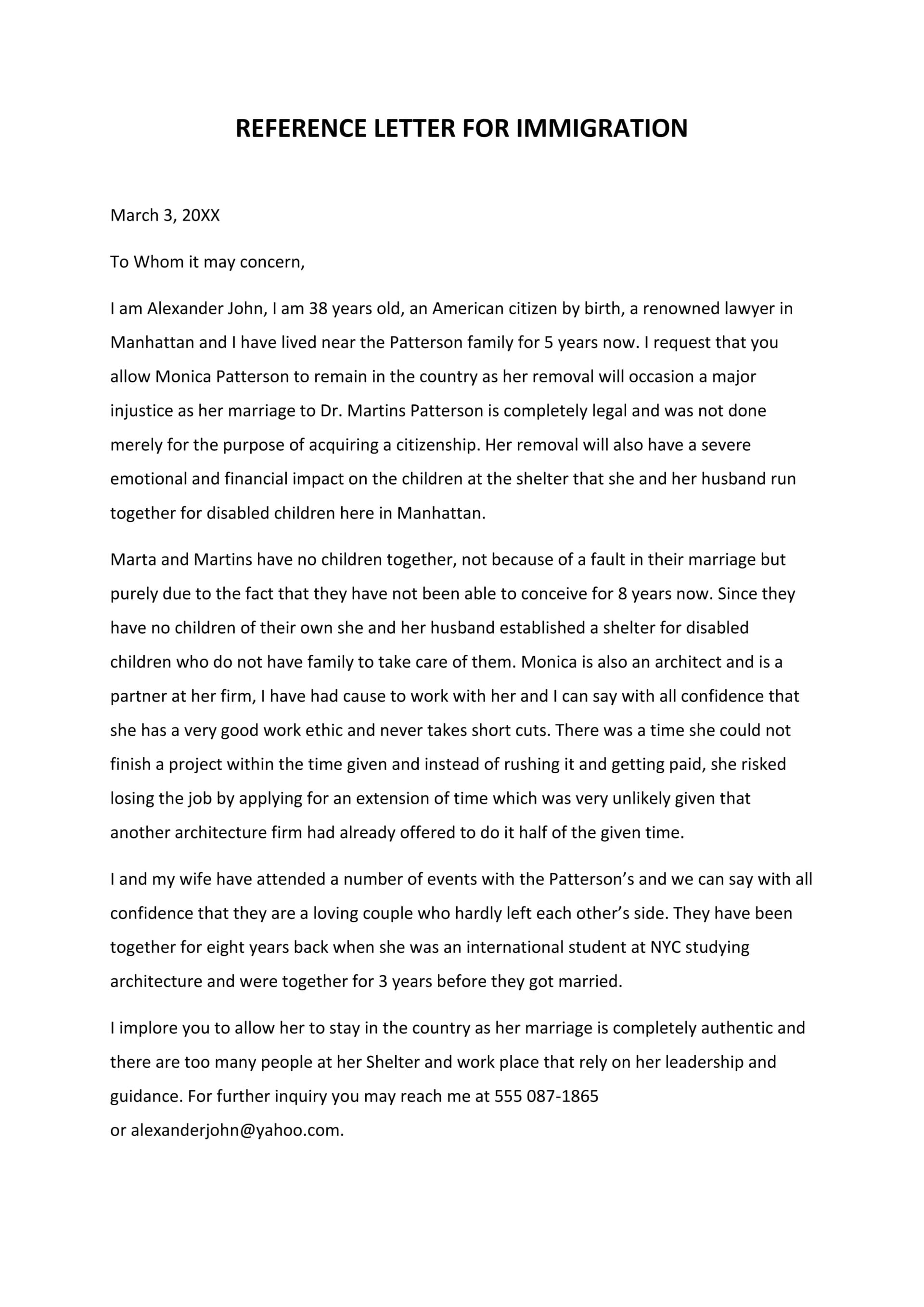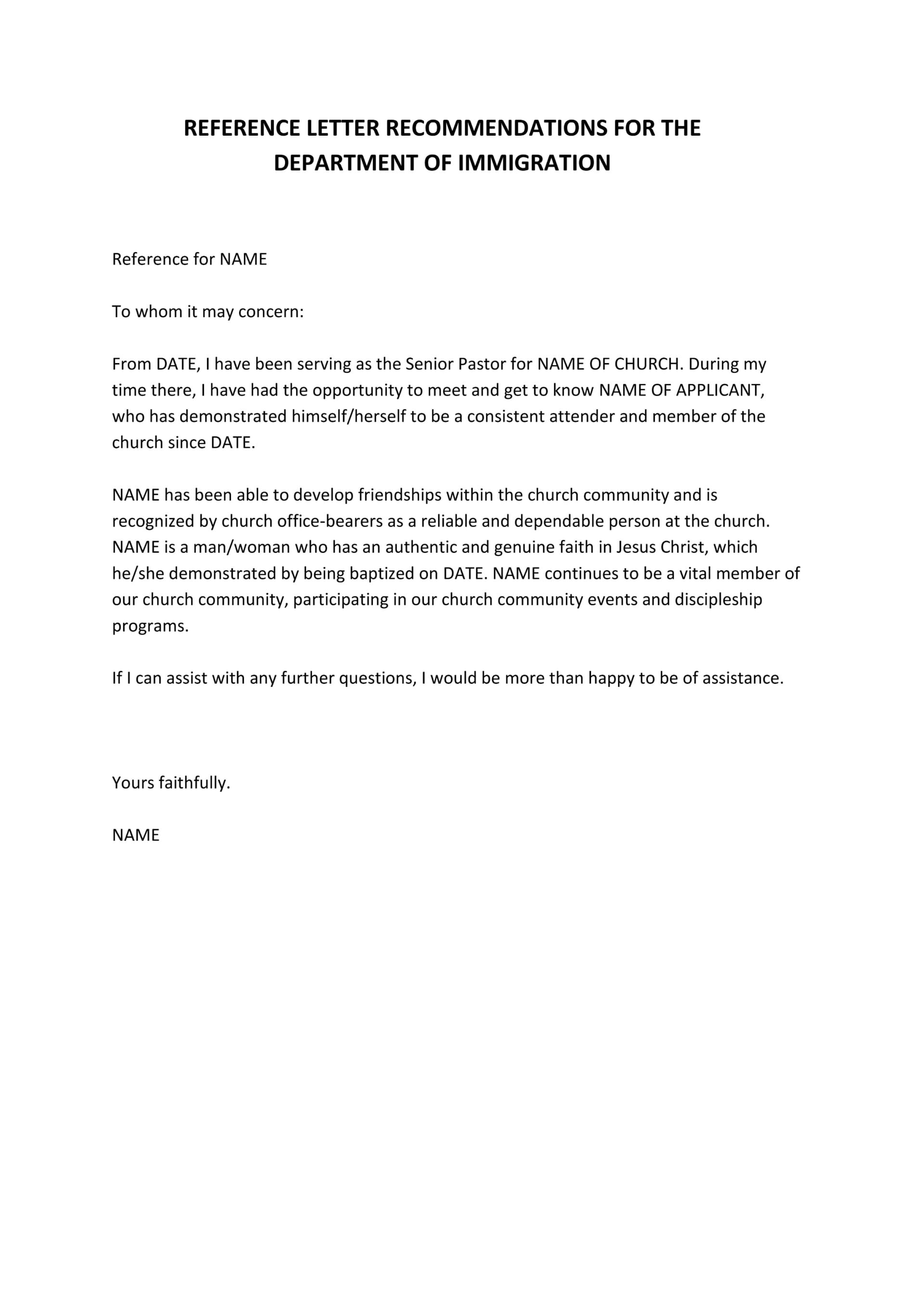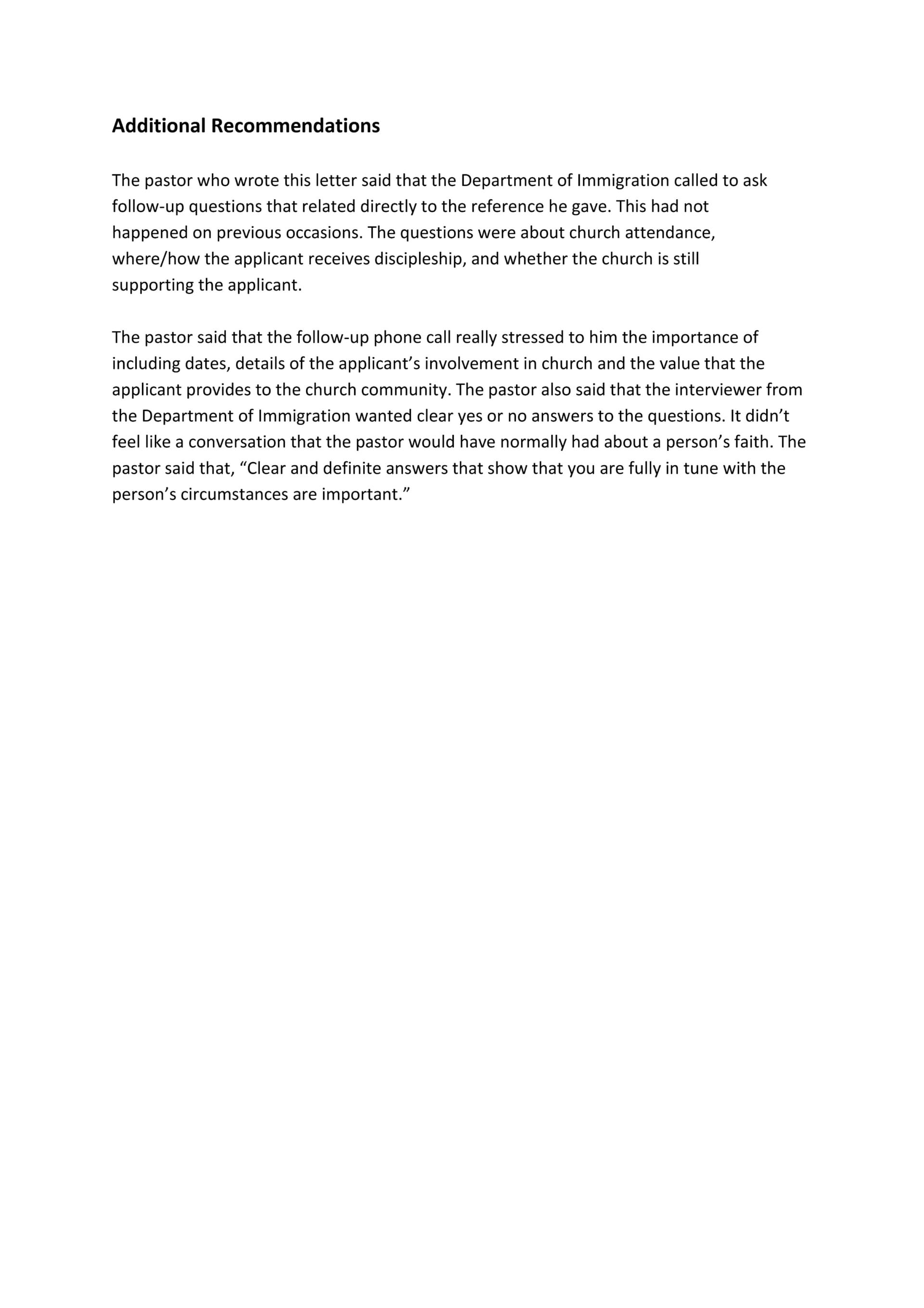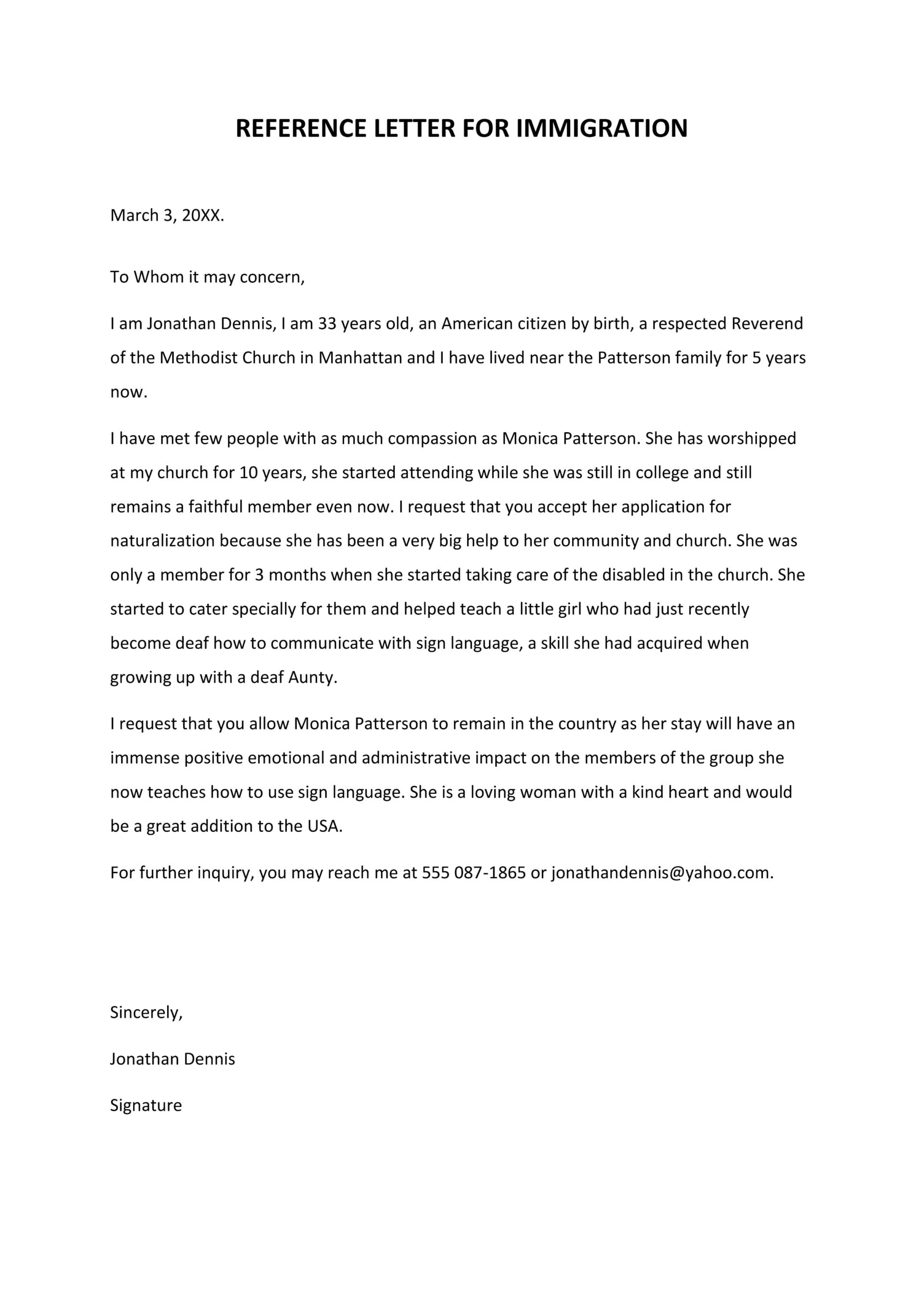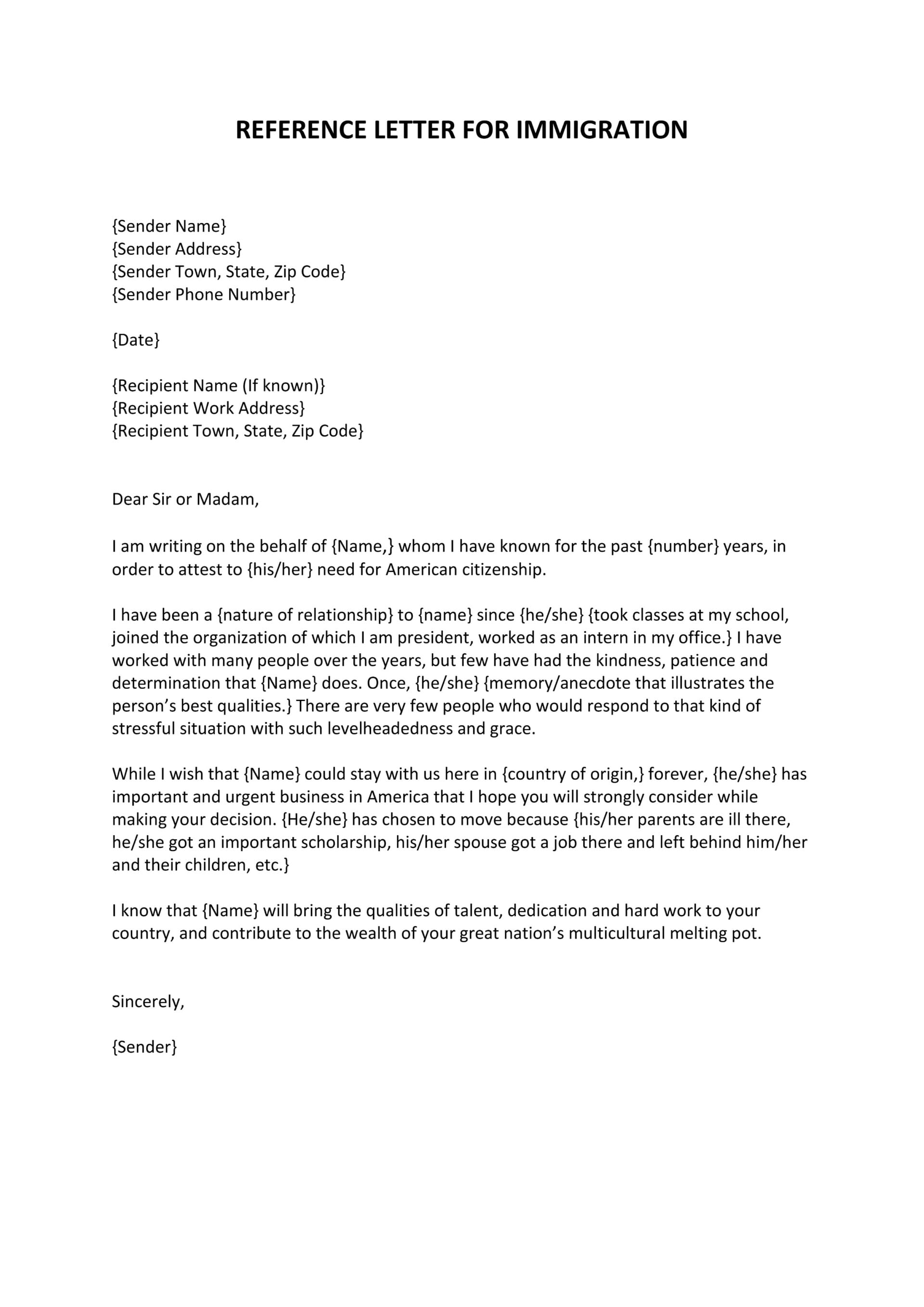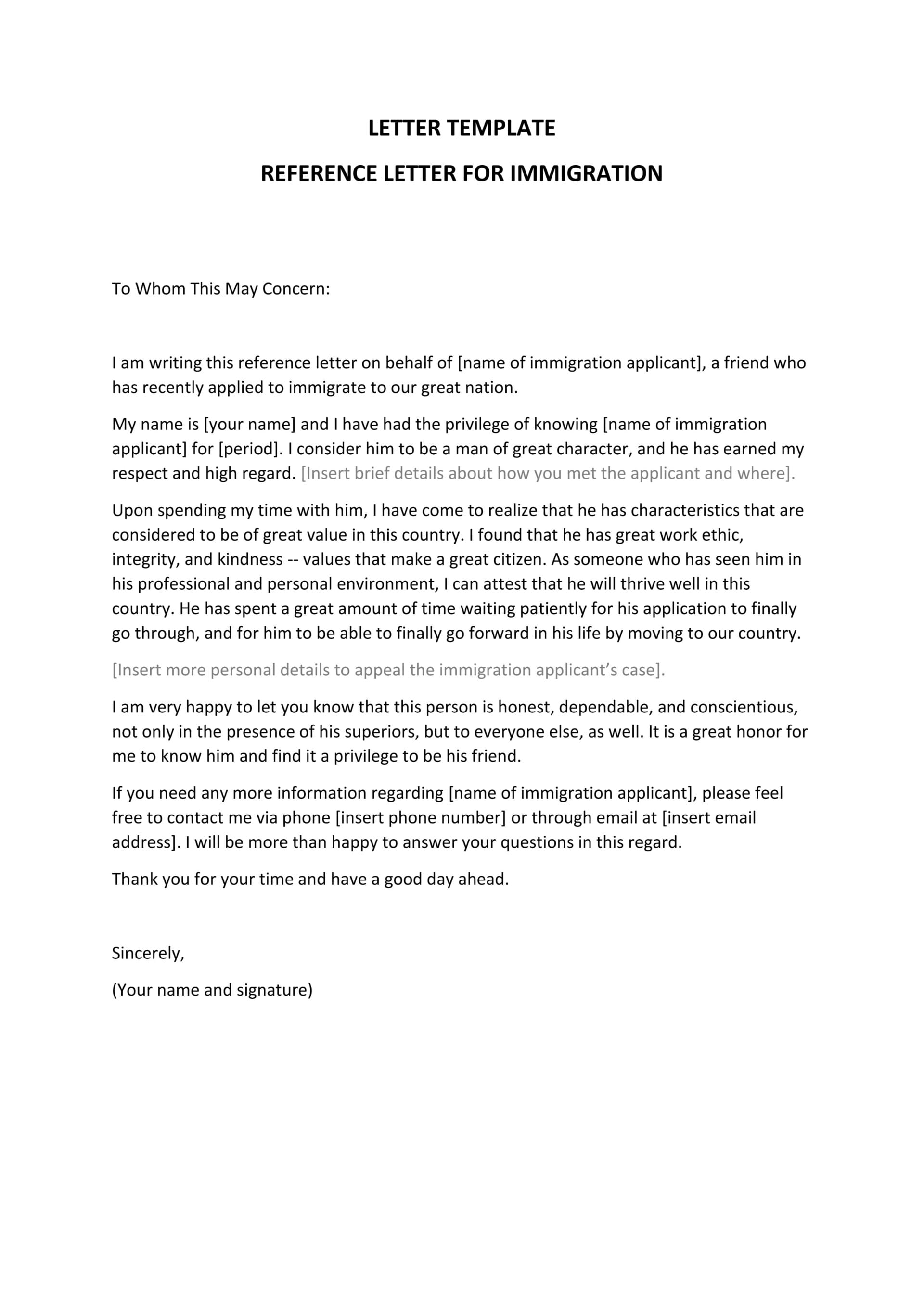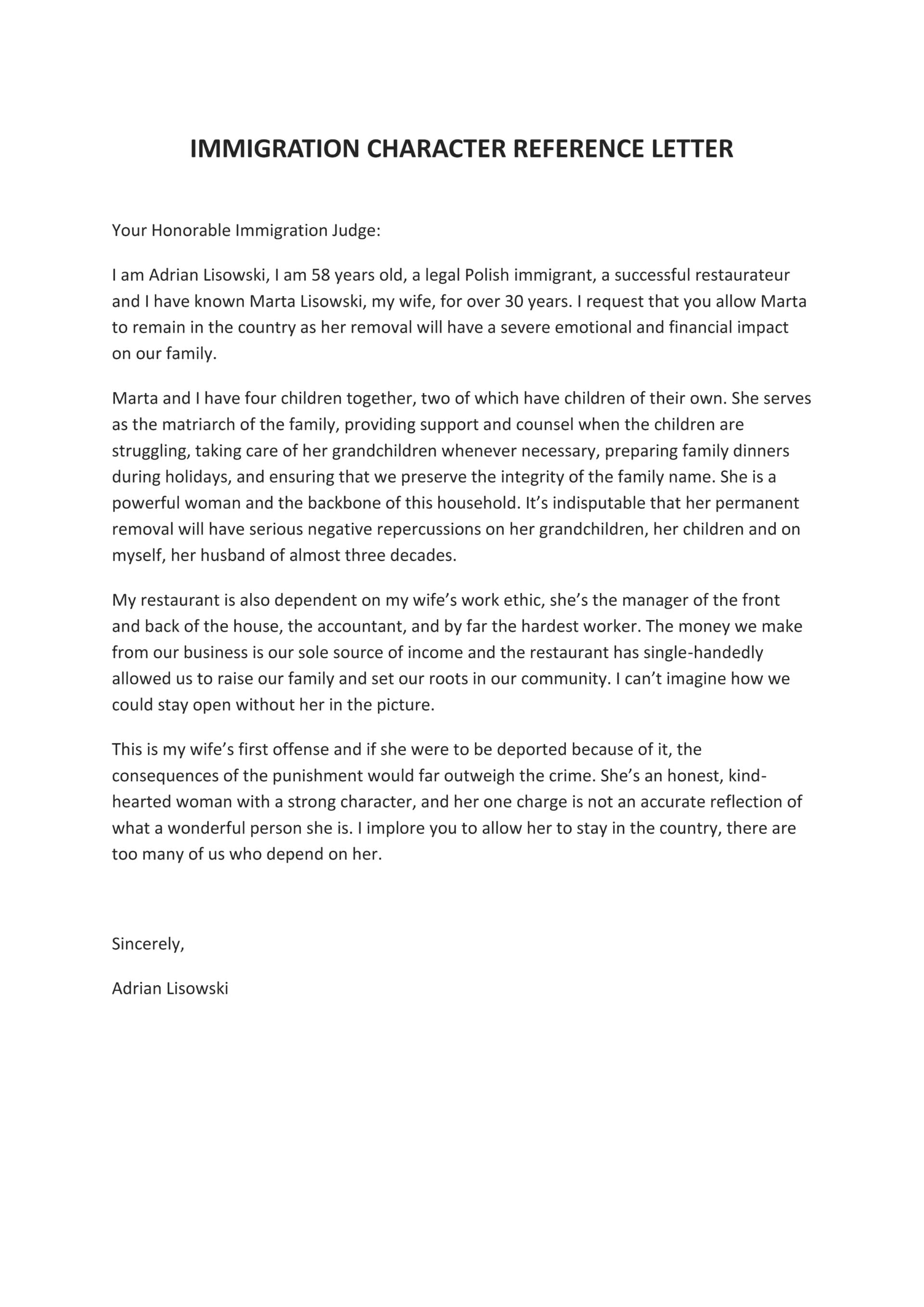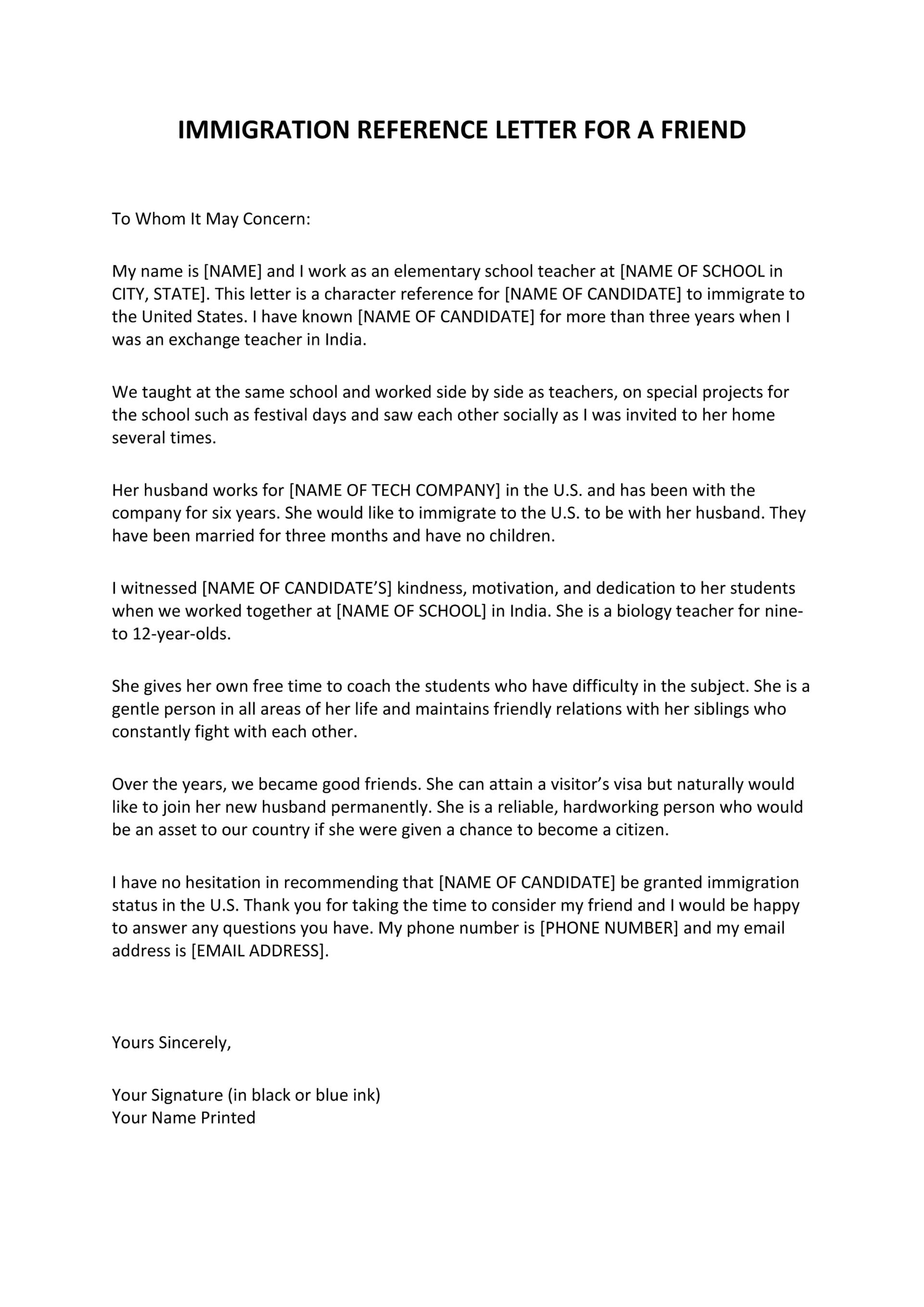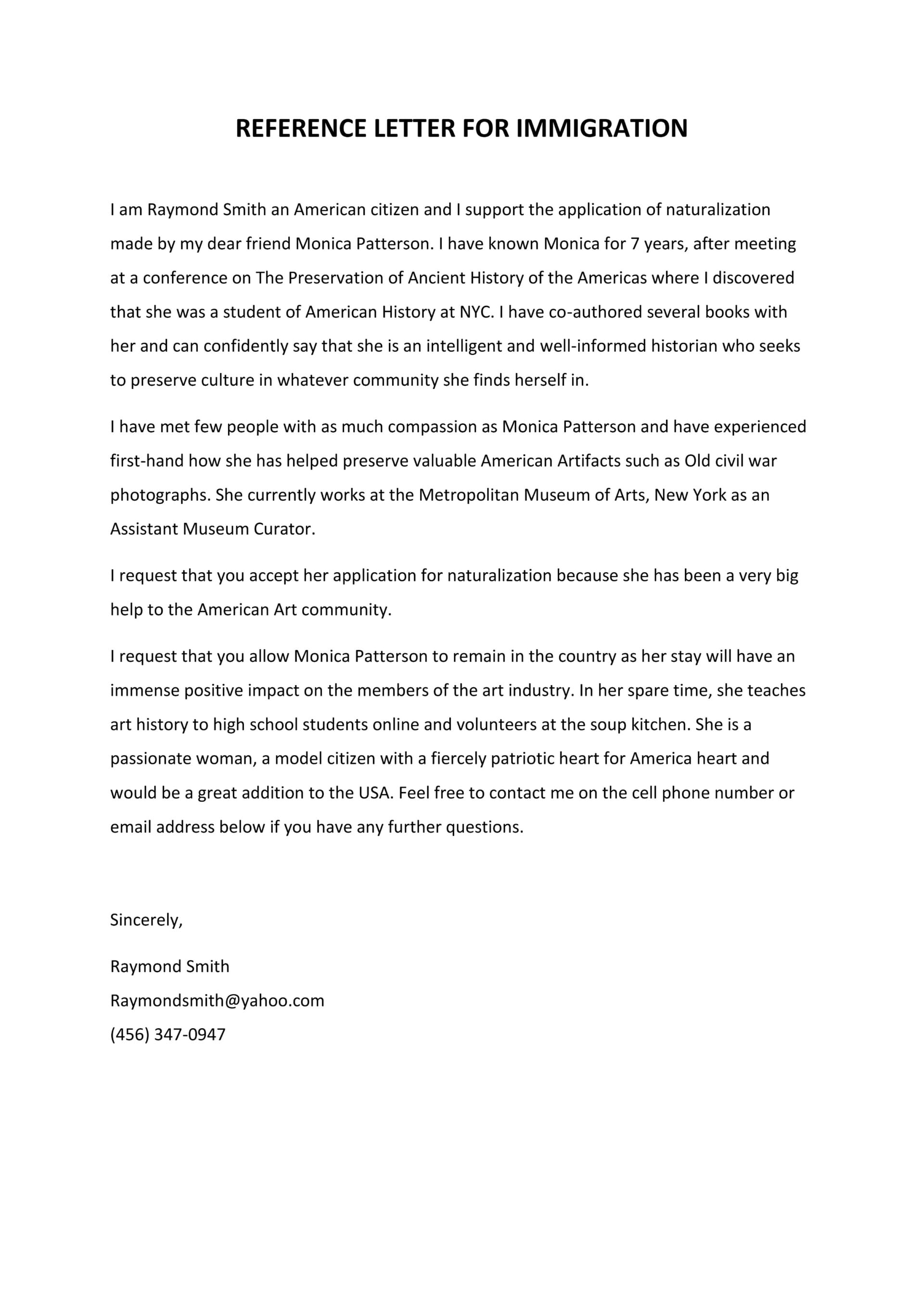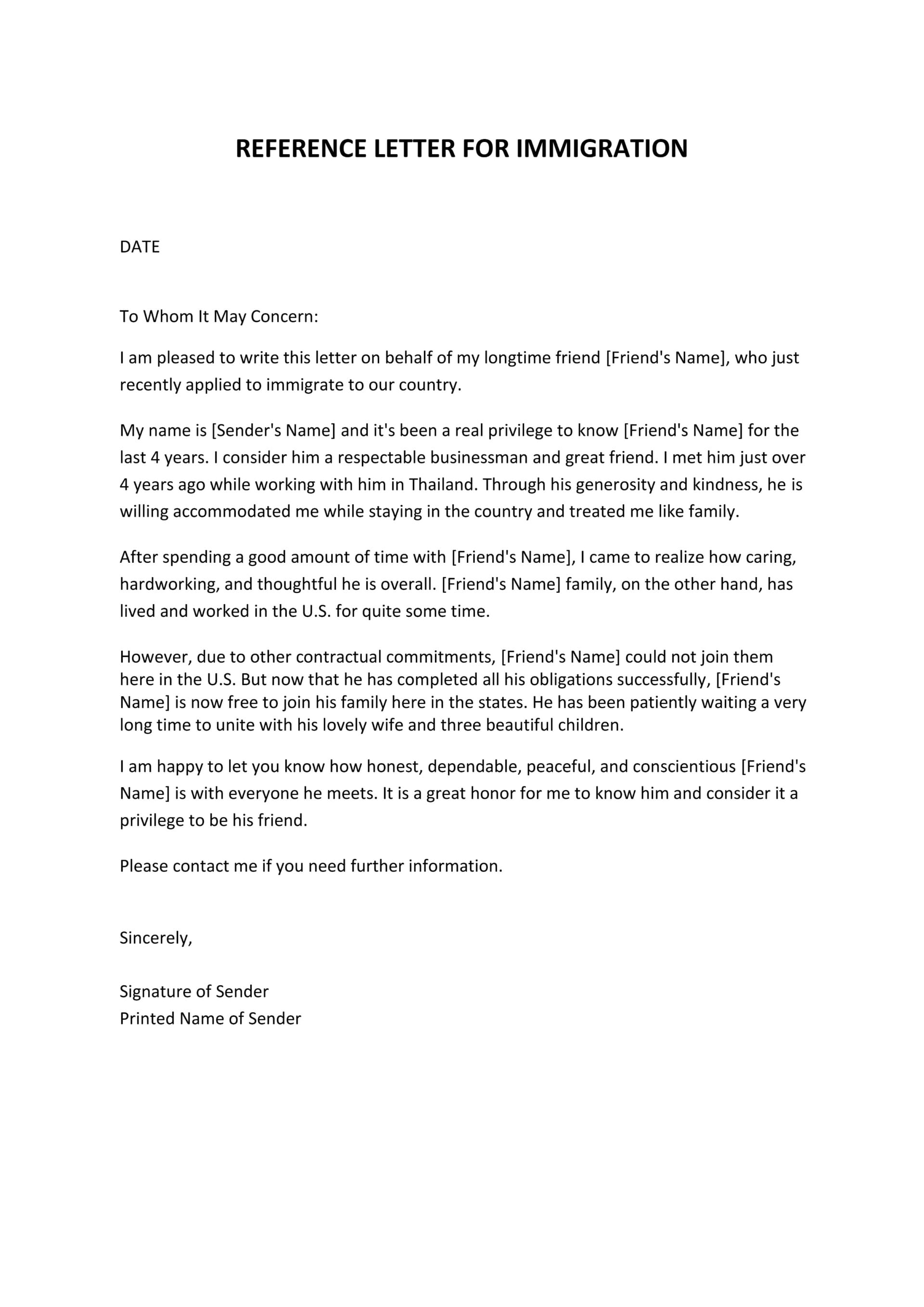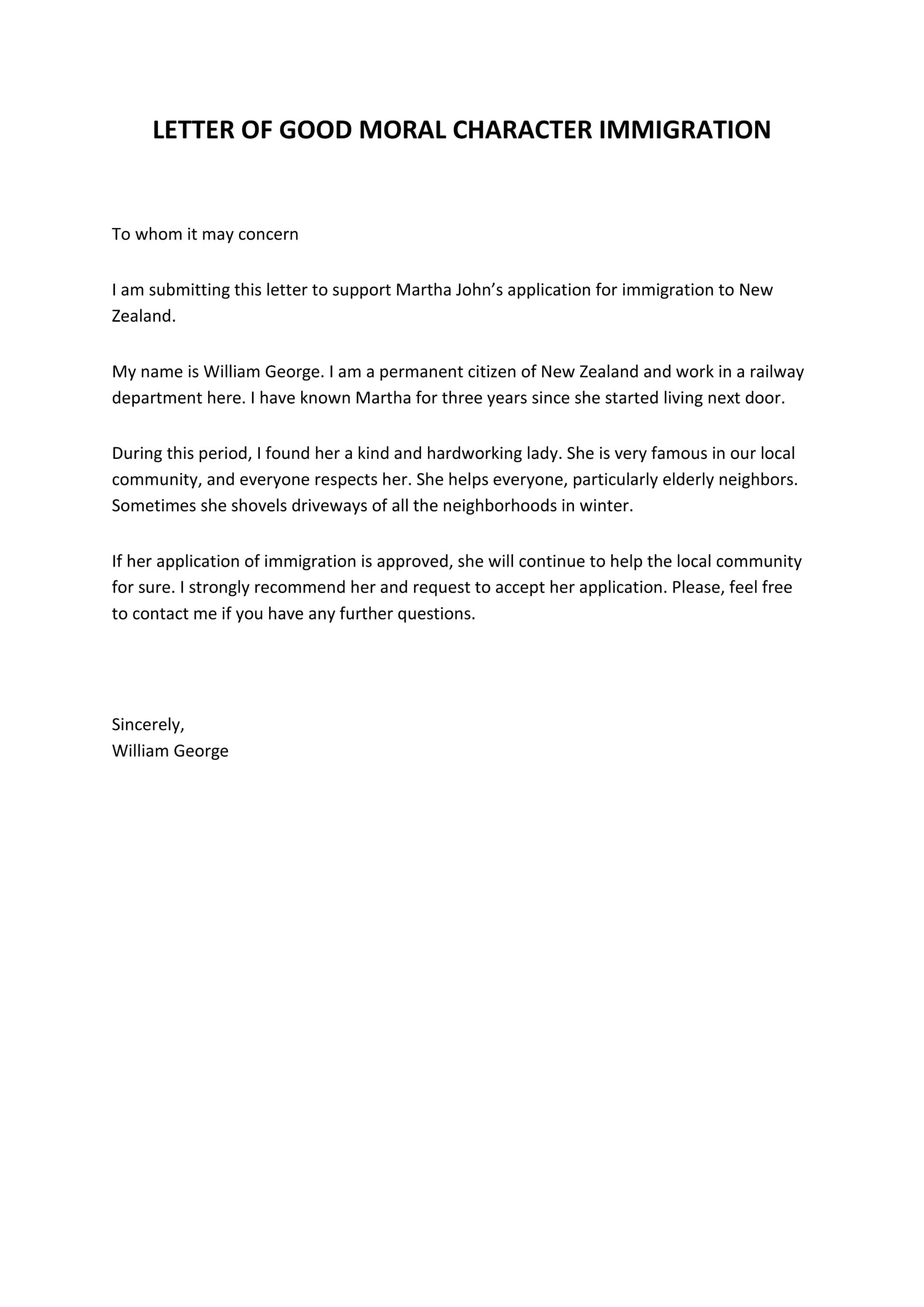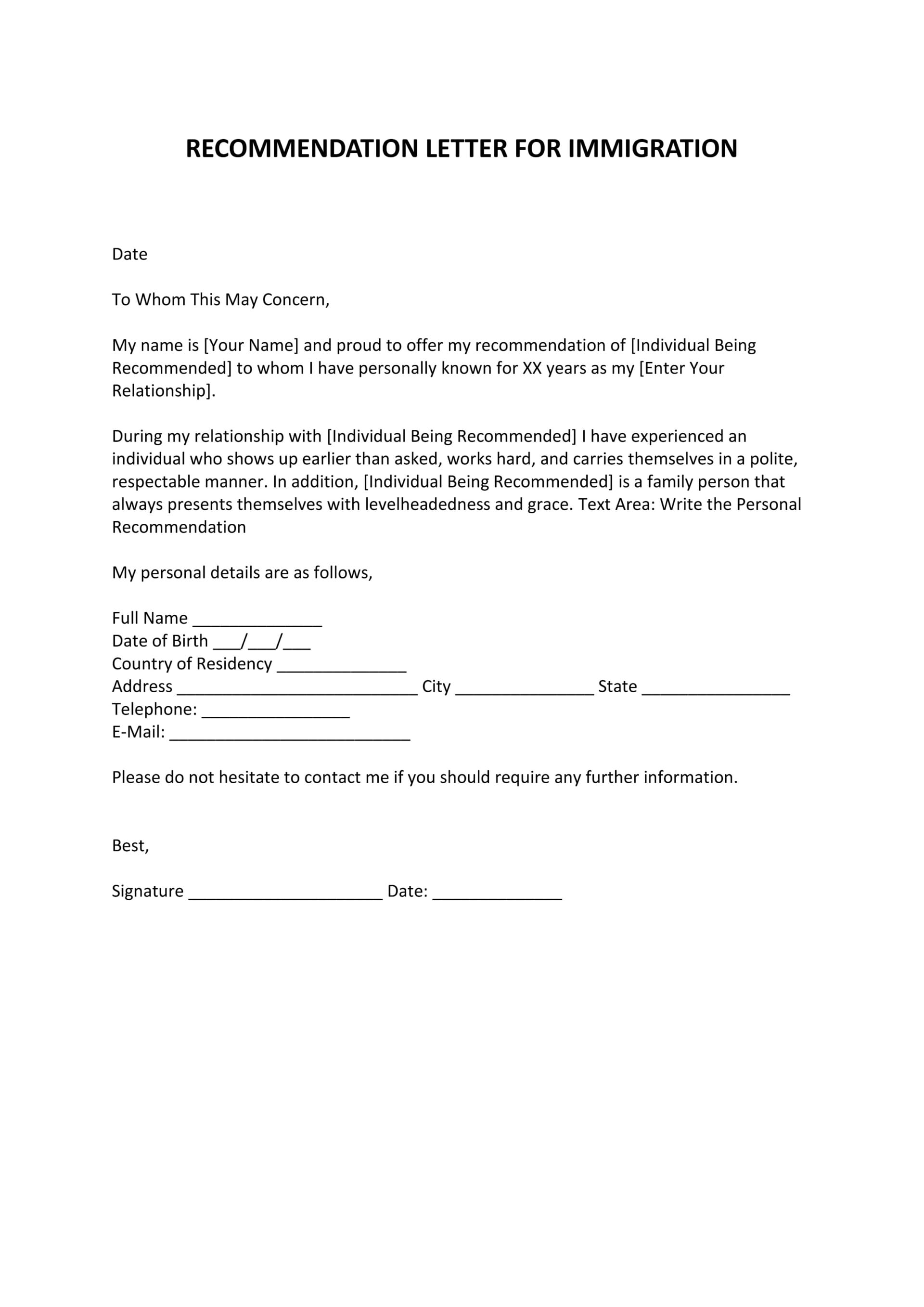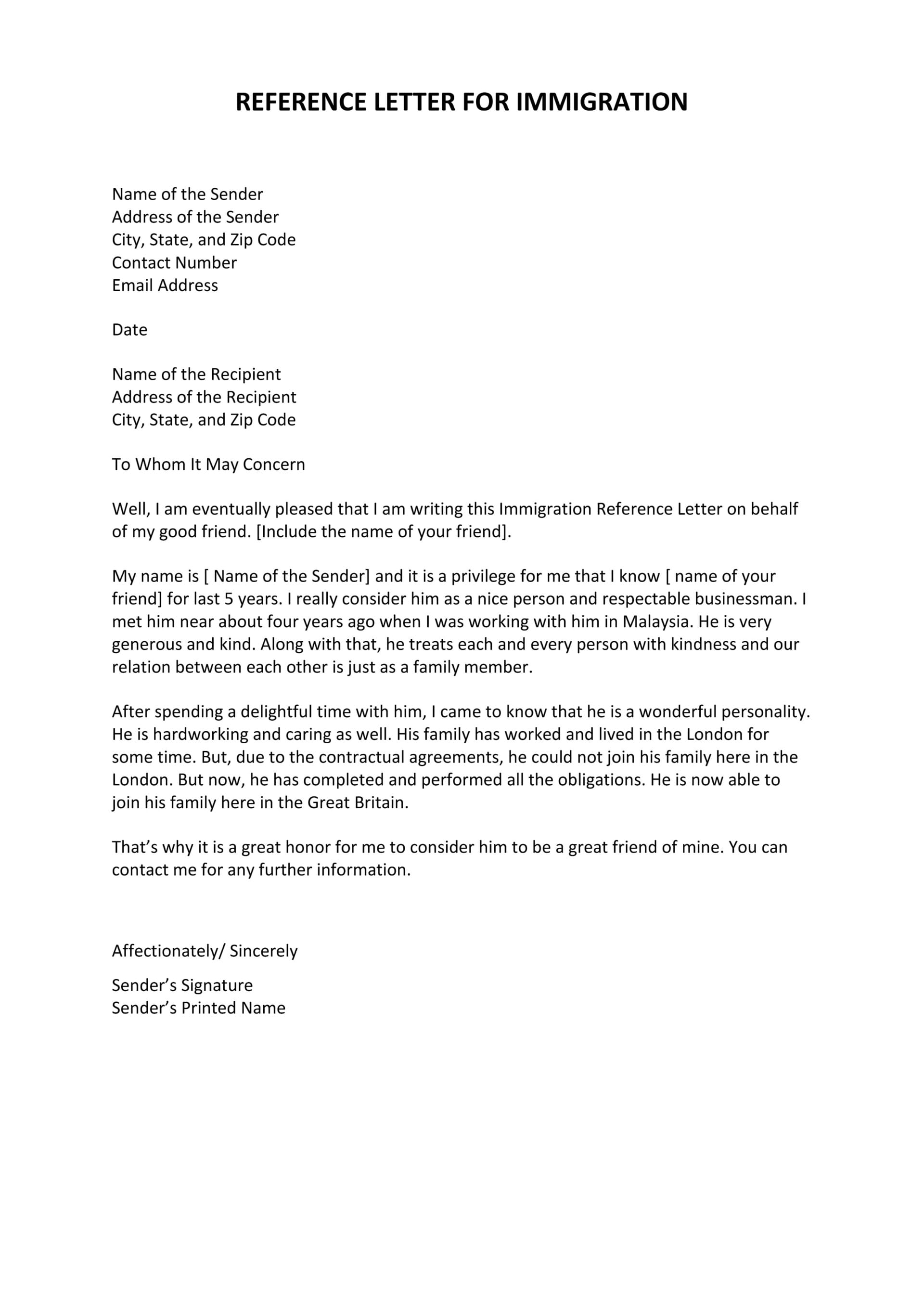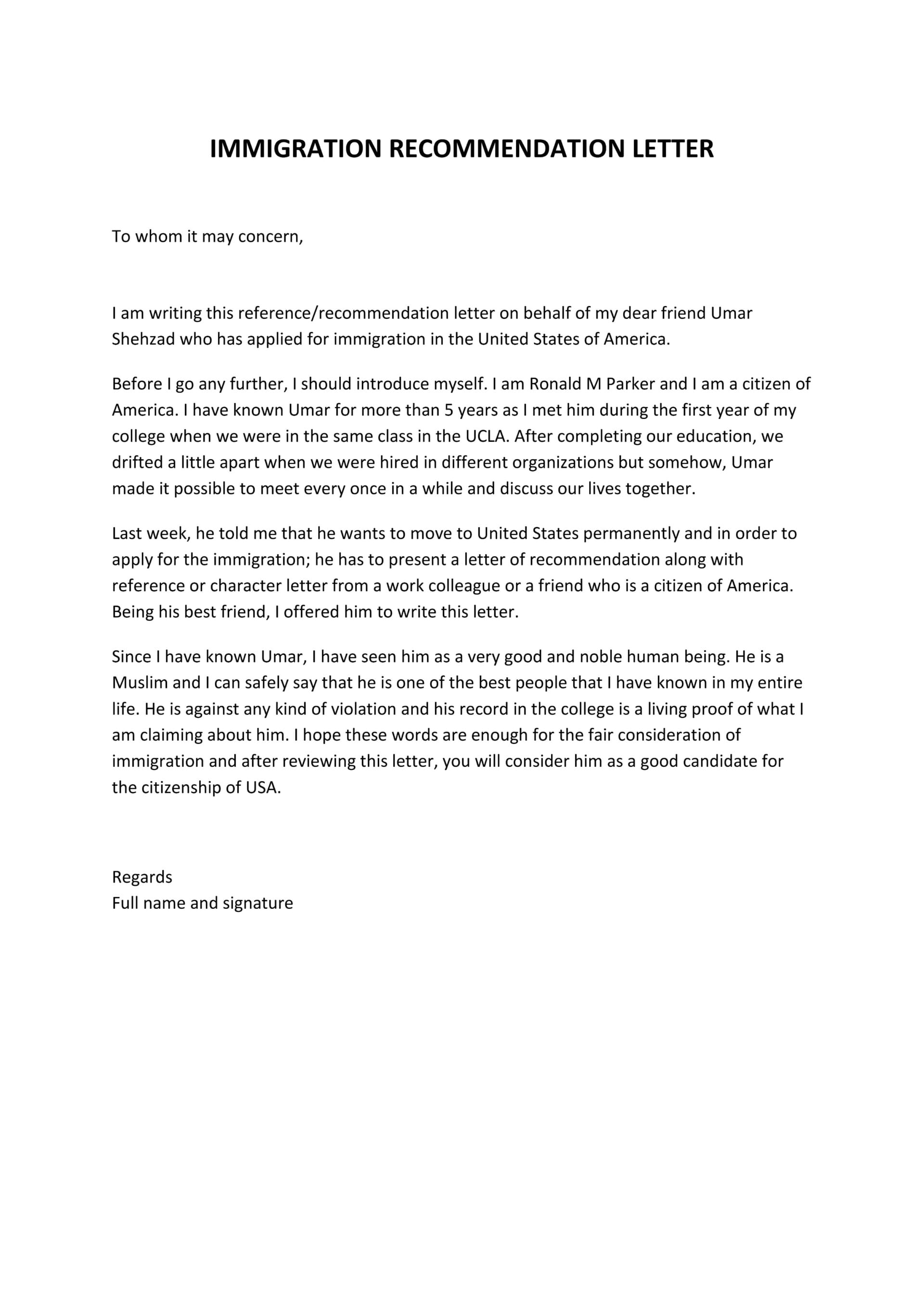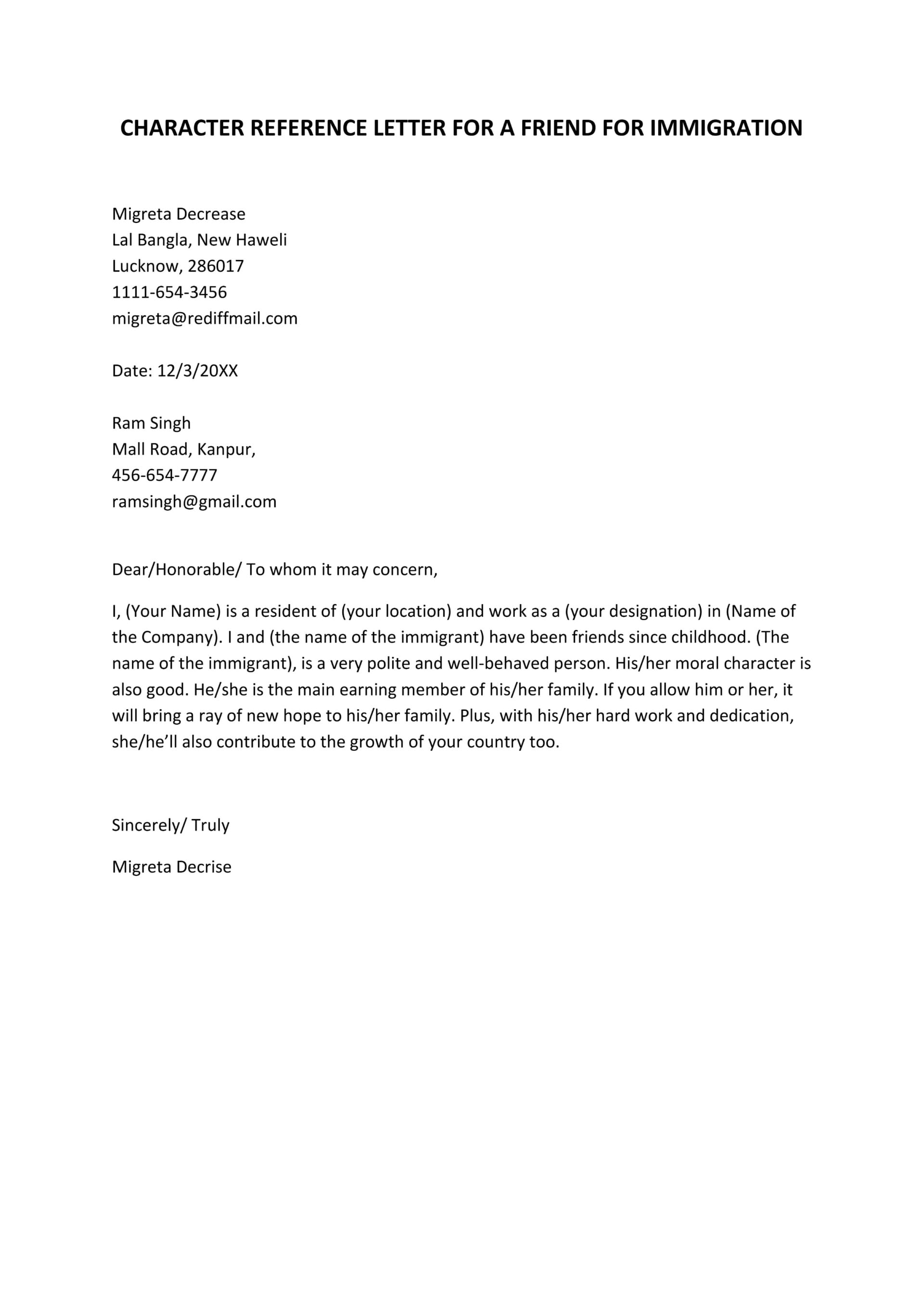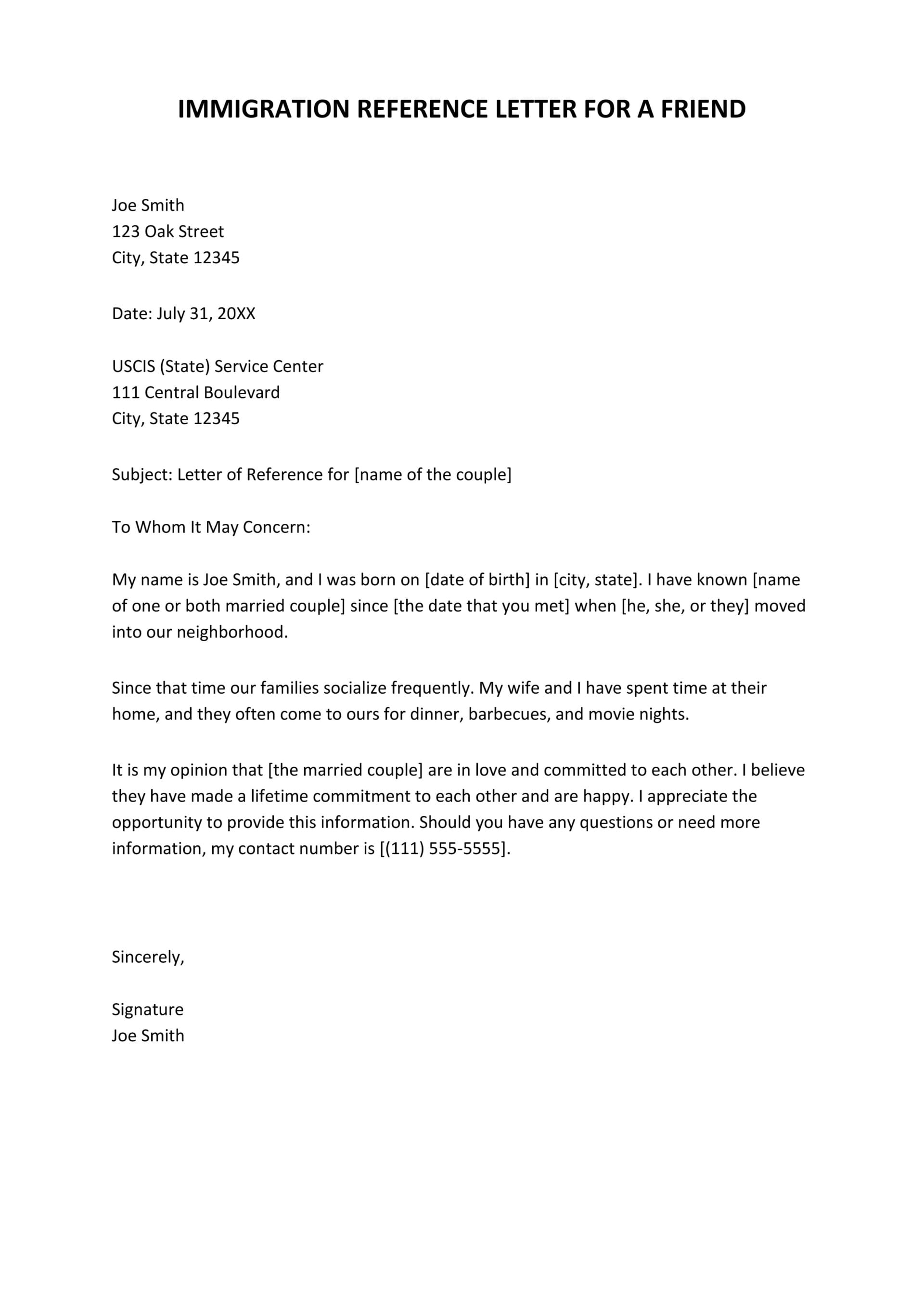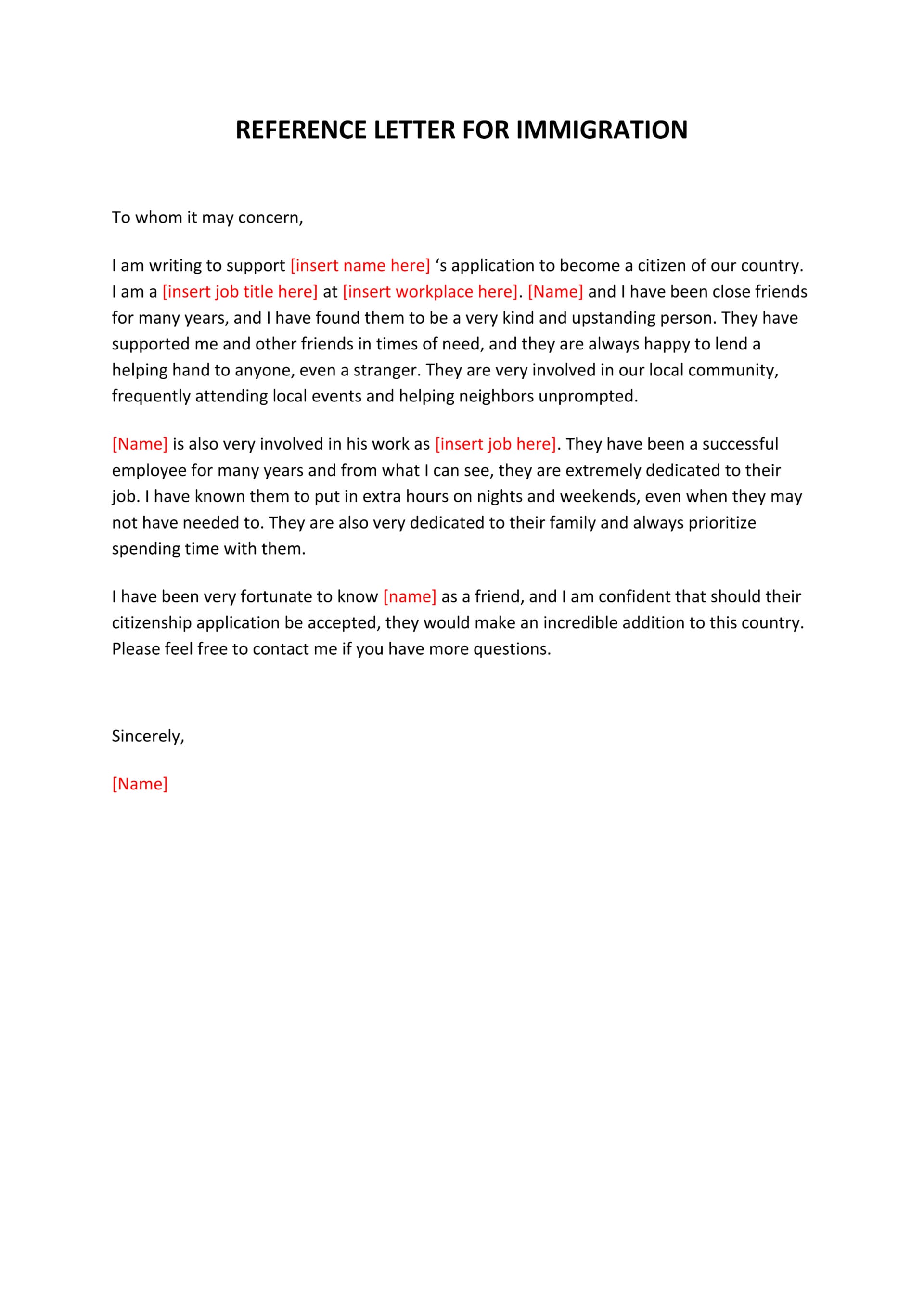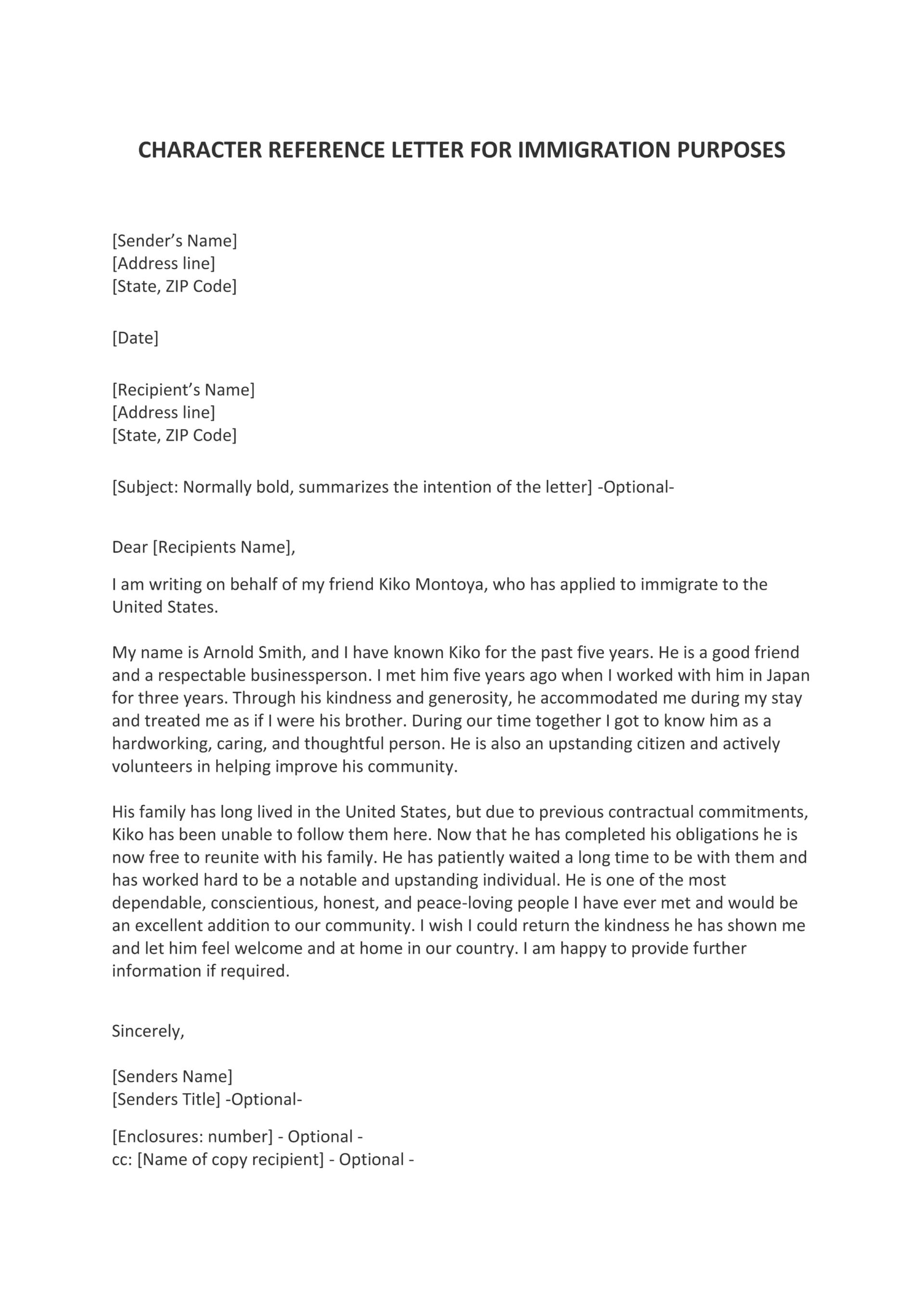A good moral character letter for immigration is a personal yet formal document written by someone who knows the applicant well and can vouch for their integrity and positive contributions. Unlike employment-based recommendation letters, these references focus on the applicant’s honesty, reliability, and participation in the community rather than technical qualifications. USCIS and immigration judges use them to see beyond paperwork and better understand who the applicant is as a person. In other words, a well-written letter humanizes the applicant and complements formal evidence by sharing real examples of how they act in everyday life. Such letters are often submitted with naturalization, adjustment of status, asylum, or removal cases to strengthen the applicant’s credibility. However, they should be specific, sincere, and relevant, as vague praise or exaggerated claims can hurt rather than help an immigration case.
Quick Facts:
- Purpose: A moral character letter attests to an applicant’s integrity, behavior, and community contributions, giving immigration officials insight beyond legal documents.
- Who writes it: The writer should have known the applicant for several years, be a U.S. citizen or lawful permanent resident, and hold a respected role in the community.
- When it’s used: These letters can support applications for naturalization, adjustment of status, asylum, waivers of inadmissibility, and even deportation defense cases.
- Format: A formal business letter format is recommended; it should be typed, dated, and signed, contain the writer’s contact information, and be no longer than one or two pages.
- Content: Specific anecdotes illustrating the applicant’s moral character and community involvement carry more weight than generic compliments.
Examples and Templates
Good Moral Character Letter for Immigration Template
Friend Immigrant Character Reference Letter Template
Church Community Immigrant Character Reference Letter – Word
Employee Immigrant Character Reference Letter Template
Church Member Immigrant Character Reference Letter Template
Colleague Immigrant Character Reference Letter
Friend Immigrant Character Reference Letter Template
Wife Immigrant Character Reference Letter
Teacher Immigrant Character Reference Letter Template
Student Immigrant Character Reference Letter Template
Social Worker Immigrant Character Reference Letter Template
Neighbor Immigrant Character Reference Letter Template
Longtime Friend Immigrant Character Reference Letter Template
Local Immigrant Character Reference Letter Template
HR Executive Immigrant Character Reference Letter
General Immigrant Character Reference Letter
Friend Immigrant Character Reference Letter Template
Friend Immigrant Character Reference Letter Template
Friend Immigrant Character Reference Letter
Friend Immigrant Character Reference Letter Template
Family Member Immigrant Character Reference Letter Template
Friend Immigrant Character Reference Letter Template
Friend Immigrant Character Reference Letter Template
Cousin Immigrant Character Reference Letter Template
Community Immigrant Character Reference Letter Template
Colleague Immigrant Character Reference Letter
Church Member Immigrant Character Reference Letter Template
Business Person Immigrant Character Reference Letter Template
Friend Immigrant Character Reference Letter Template
How to Write a Good Moral Character Letter for Immigration
Before drafting your letter, consider why it is being requested. Immigration authorities may ask for character references in various scenarios such as naturalization, visa applications, waivers, or removal proceedings. Each situation has different legal requirements, so understanding the context helps you tailor your message. A thoughtful letter should not simply repeat the applicant’s résumé; instead, it should tell immigration officers who the person is in everyday life by sharing examples of kindness, responsibility, and community involvement. Use the following steps to craft a compelling moral character reference.
Understand the Purpose and Immigration Context
Every immigration benefit has its own criteria. Before you write, learn about the specific application, whether it’s citizenship, adjustment of status, asylum, or a waiver. For example, lawful permanent residents must show good moral character during a statutory period (generally five years, or three years if married to a U.S. citizen). Victims of crimes, survivors of abuse, or people requesting waivers may also need character letters. Knowing the context helps you emphasize qualities relevant to the case. If you’re unsure whether a letter will help, consult an immigration attorney; some situations, such as certain asylum claims, may not benefit from character letters and could even harm the case.
Choose a Credible Writer and Gather Information
Immigration officers give more weight to letters written by people in good standing, such as citizens or lawful permanent residents who hold respected positions like employers, teachers, religious leaders, or long-time family friends. The writer should know the applicant well enough to provide concrete examples of their character. Before drafting, gather the applicant’s full legal name, the specific immigration process, and any details that may be relevant (community activities, volunteer work, family situation). If there are negative aspects in the applicant’s history, discuss them honestly and provide context rather than ignoring them; serious crimes can hinder eligibility, but demonstrating rehabilitation and positive contributions may help.
Format the Letter and Introduce Yourself
Use a formal business letter format. Include your full name, address, phone number, and email at the top, followed by the date and the address of the receiving immigration authority (for example, “U.S. Citizenship and Immigration Services” or the immigration judge). Begin with a professional salutation (“To Whom It May Concern” or the official’s title). In the first paragraph, introduce yourself by stating your name, occupation, immigration status, and how long you have known the applicant. Briefly describe the nature of your relationship (friend, employer, mentor) and your role in the community. This establishes your credibility and helps the reader understand why your opinion matters.
Example
Simon Ludders
789 Park Lane
Brooklyn, NY 11205
Phone: 555‑210‑9876
Email: [email protected]
July 5, 2094
U.S. Citizenship and Immigration Services
26 Federal Plaza, New York, NY 10278
To Whom It May Concern:
My name is Simon Ludders, and I have been the senior manager at Midtown Logistics in New York City for the past ten years. As a U.S. citizen actively involved in community outreach, I have had the privilege of knowing Bob Saget for over seven years as both his supervisor and mentor.
Describe Your Relationship and Provide Key Details
In the next paragraph(s), explain how you know the applicant and the length and depth of your relationship. Mention specific settings such as the workplace, neighborhood, or religious organization where you interact. If you supervise them, note your role and the applicant’s duties. Describe the qualities you observed firsthand, such as reliability, honesty, and compassion, that demonstrate good moral character. Immigration officials value letters that clearly articulate the writer’s relationship to the applicant and include context. Avoid vague statements like “he’s a great guy”; instead, provide situations where the applicant made ethical decisions or helped others.
Example
I first met Bob when he joined Midtown Logistics as a warehouse associate in 2087. Over the years I have worked closely with him and observed his meticulous work ethic, honesty and dedication to his teammates. In 2090, our facility faced a sudden staffing shortage during the winter holidays. Bob volunteered to cover extra shifts, ensuring that orders were processed on time so that families received their holiday packages. His initiative kept our operations running smoothly and demonstrated his commitment to our team and customers.
Highlight the Applicant’s Moral Character, Contributions and Achievements
The heart of your letter should detail the applicant’s moral virtues with concrete examples. Discuss their integrity, respect for the law, kindness, and involvement in the community. You might mention volunteer work, church or school activities, charitable donations, mentoring, or how they support their family. If the applicant overcame difficulties, highlight their resilience and growth. Balanced letters acknowledge minor weaknesses while showing overall good character. Presenting specific stories demonstrates sincerity and credibility.
Example
Beyond his professional responsibilities, Bob consistently demonstrates a genuine desire to help others. He volunteers every Saturday at the Brooklyn Community Garden, where he mentors local teens about sustainable gardening and organizes harvest donations for elderly neighbors. When a coworker’s home was damaged by a fire in 2092, Bob organized a fundraiser and personally spent weekends helping with repairs. His actions reveal a generous spirit and a commitment to strengthening our community.
Address Family and Personal Circumstances (When Applicable)
Sometimes it’s appropriate to discuss the applicant’s family ties, especially if those relationships are a key reason for seeking immigration relief. U.S. law values strong family connections; describing the applicant’s relationship with their spouse, children, or elderly parents can underscore why they deserve to remain in the country. If relevant, mention hardships the family would face if the application were denied. Always support these points with specific observations rather than emotion alone.
Example
Bob is a devoted husband to his wife, Kate Phillips, and a loving father to their two children. He often spends his evenings coaching his daughter’s basketball team at the local community center and helps his son with school projects. His absence would leave his family without their primary caregiver and emotional anchor. Witnessing his dedication to his family reinforces my belief that allowing him to remain in the United States would serve the best interests of his wife and children.
Pro Tip:
If you’re not sure which details or anecdotes will be most helpful, ask the applicant or their attorney for guidance before you start writing. Getting a brief overview of the immigration benefit being sought and any specific instructions from USCIS allows you to tailor your letter to the legal criteria. This coordination ensures your examples align with the case and avoids including irrelevant information that could distract from the applicant’s strengths.
Conclude with a Strong Endorsement and Contact Information
End your letter by summarizing why you believe the applicant deserves the requested immigration benefit and by restating their positive qualities. Offer to provide additional information if needed, and include your preferred contact details. Sign the letter with your name and, if possible, add a handwritten signature. Some writers choose to have the letter notarized to verify their identity.
Example
In conclusion, I wholeheartedly support Bob Saget’s application for lawful permanent residency. His honesty, work ethic and compassion make him an asset to our company and our community. I am confident he will continue to contribute positively to society if allowed to remain in the United States. Should you require additional information, please feel free to contact me at 555‑210‑9876 or [email protected].
Sincerely,
Simon Ludders
Proofread and Ensure Accuracy
Before submitting the letter, proofread it for clarity, grammar, and factual accuracy. Immigration officials expect professional correspondence, and errors or inconsistencies can undermine your credibility. Ensure that dates, names, and facts align with the applicant’s records. Keep the letter concise; one or two pages is typically sufficient. Finally, date the letter within six to twelve months of submission so the information reflects the applicant’s current circumstances.
Sample Good Moral Character Letter for Immigration
Example
Michael Ontkean
4321 Oak Avenue
San Francisco, CA 94102
Phone: 555‑321‑6543
Email: [email protected]
August 20, 2094
U.S. Citizenship and Immigration Services
San Francisco Field Office
630 Sansome Street
San Francisco, CA 94111
To Whom It May Concern:
My name is Michael Ontkean, a U.S. citizen and the director of community programs at Bayview Youth Center. I have known Kate Phillips for more than eight years through our work at the center, where she has served as a volunteer coordinator since 2086. As someone with decades of experience mentoring youth and supervising volunteers, I feel privileged to share my observations of her outstanding character.
I first met Kate when she joined our organization to help expand our after‑school tutoring program. From the outset, she demonstrated reliability, compassion and a strong moral compass. When our program faced budget cuts in 2088, Kate personally organized fundraising events that kept the tutoring program afloat and ensured dozens of students continued to receive academic support. Her selfless dedication kept our doors open during a critical period.
Over the years, I have witnessed numerous examples of Kate’s integrity and kindness. She treats every student with respect and goes out of her way to ensure that marginalized youth feel welcome. In 2091, she started a Saturday science club for girls, recruiting volunteer scientists from local universities and inspiring many of the participants to pursue STEM careers. She often spends her own time and money to provide materials for the club, reflecting her commitment to empowering others.
Kate’s positive influence extends beyond our program. She is a devoted wife to John Stamos and a loving mother to their son. Despite her demanding schedule, she never misses her son’s school events and regularly organizes neighborhood clean‑ups, fostering a sense of community pride. Her removal would not only devastate her family but also deprive countless children of a caring mentor.
In closing, I wholeheartedly support Kate Phillips’ application for lawful permanent residency. Her unwavering integrity, dedication to service and kindness make her an invaluable asset to our community. If you have any questions or need further information, please feel free to contact me at 555‑321‑6543 or [email protected].
Sincerely,
Michael Ontkean
When Is a Good Moral Character Letter Necessary?
While many immigration applications do not explicitly require character references, submitting one can strengthen a case. Naturalization applicants must demonstrate good moral character during the statutory period; a well-documented letter can show positive contributions and offset minor transgressions. Those applying for certain visas or waivers, such as victims of crimes, survivors of abuse, or applicants seeking forgiveness for immigration violations, may need to provide evidence of rehabilitation and community involvement. In removal proceedings, letters should explain why the applicant merits relief and how deportation would negatively affect the community and family. However, character letters are not always appropriate. For example, asylum cases often require detailed evidence of persecution rather than community praise; in such situations, submitting a moral character letter could distract from the main legal arguments. When in doubt, consult an immigration attorney.
Understanding Good Moral Character and USCIS Guidelines
USCIS defines “good moral character” as behavior that meets the standards of average citizens in the community. It does not require perfection but does expect applicants to avoid serious crimes and act responsibly. Certain offenses, such as murder, aggravated felonies, or crimes of moral turpitude, can permanently bar an individual from demonstrating good moral character. Lesser offenses may temporarily impede eligibility, depending on when they occurred and whether the applicant has rehabilitated. A strong character letter should acknowledge any past issues and show how the applicant has reformed, emphasizing positive contributions and personal growth. Keep in mind that USCIS examines conduct during the statutory period (usually five years for most applicants or three years for spouses of U.S. citizens). Highlighting consistent good behavior within this time frame strengthens the applicant’s case.
Common Mistakes to Avoid
Even well‑meaning character references can unintentionally weaken a case if the writer overlooks key details or relies on generic praise. Before you put pen to paper, take a moment to consider the issues that immigration officers often flag. Being aware of these common pitfalls helps ensure your letter highlights the applicant’s strengths rather than creating doubts about their integrity or your credibility. Here are some mistakes to steer clear of:
- Using generic language or templates: Immigration authorities can easily spot form letters. Tailor your letter to the applicant’s situation and provide specific anecdotes.
- Ignoring the relationship: Failing to clearly state how you know the applicant or omitting how long you’ve known them weakens credibility.
- Exaggerating or misrepresenting facts: Overly emotional statements or false claims can damage the applicant’s case. Be honest and balanced, acknowledging areas where the applicant is still growing.
- Leaving out contact details or signature: A proper business letter must include your full contact information and a signature. Without this, immigration officials cannot verify your statements.
- Submitting outdated letters: Keep the letter recent, ideally within six to twelve months, so that it reflects the applicant’s current situation.
- Failing to proofread: Spelling and grammatical errors undermine professionalism and could lead officials to question the credibility of your endorsement.
FAQs
A credible moral character letter should come from someone who knows the applicant well and has observed their behavior over time. This person might be an employer, coworker, professor, religious leader, mentor, friend, or community member. The writer should be a U.S. citizen or lawful permanent resident in good standing and, ideally, hold a respected position in the community. Avoid asking someone with little direct knowledge of the applicant or whose own conduct might be questionable.
Most immigration authorities expect a character reference to be one to two pages, enough to provide meaningful detail without becoming repetitive. Make sure the letter is recent; information older than a year may be considered stale. A current letter shows that the writer is aware of the applicant’s present circumstances and supports their ongoing contributions.
Notarization is not strictly required, but it can add credibility by confirming the writer’s identity and signature. Some attorneys recommend notarizing character letters, especially in removal proceedings, because it signals to the court that the statements are sworn. If you choose to notarize, sign the letter in the presence of a notary public and attach the notary’s seal.
Avoid vague or generic praise, exaggeration, or emotional appeals without evidence. Do not omit the nature of your relationship or how long you have known the applicant, as this weakens your credibility. Steer clear of discussing irrelevant personal stories, confidential information, or unverified claims. Finally, avoid criticizing immigration authorities or making legal arguments; your role is to attest to character, not to argue law.

